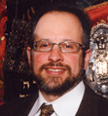
View current news articles, commentary, videos and more that have an impact on Jewish culture, politics and religion at Rabbi Silverman's Sites to See
How do we deal with the Chanukah candles when Chanukah falls on Shabbat, and what can we learn from this? I thank Noam Zion for bringing this theme up in a recent teaching. The halacha, of course, is that we light the Chanukah candles before the Shabbat candles and before sundown; and on Havdalah Saturday night, the Havdalah candle before the Chanukah candles. Why? Because once we bring in Shabbat we mustn't kindle fire, even if it’s before sundown. And conversely, we should officially bring out Shabbat before lighting our chanukiah even if it’s after starlight. In this regard, one could say that Shabbat is more important. But on the other hand, we learn something symbolic as well. We learn that on Chanukah, Pirsum Hanisa, the broadcast of the miracle, is important as well– So important that it must burn into Shabbat and that it must continue uninterrupted almost after Shabbat.
What was the miracle of Chanukah and what do her candles teach us? The miracle was that a little cruz of oil burned far longer than expected. But it was far broader than that. It was that a people that others glibly expected would not survive through the Greco-Roman era continued to burn brightly and vitally. We celebrate the inner fire of the Jewish people and the Jewish individual that will never be extinguished. It represents the fierce and fiery identity of the Jew that cannot be snuffed out. Why is the holiday 8 days, asked the Berdichever Rebbe, when the oil lasted miraculously only for seven days? After all, it was supposed to last for only a day! Answer: we light eight candles because of another long lasting candle, the candle of the Jewish soul, the candle for the Jewish people–the Jewish nation that burns and will not cease from this earth.
Candles and fires though, draw from around them. A flame cannot be sustained in a vacuum–it will be snuffed. It draws on the oxygen around it. Similarly, every Jewish society has incorporated some of the vitality of the cultures it has inhabited. One only need look at the Roman-style synagogues, the Roman togas in Judaic artwork, the wording on synagogues like Dura Europa in Greek, and the incorporation of the mosaic zodiac tile floors in synagogues of Northern Israel. The Middle Ages saw the development of Ladino, an Italian Spanish language, and the development of Yiddish, a Middle German language. Maimonides introduced ideas of Aristotle into Jewish Philosophy and Jewish curricula in the Sephardic Golden age incorporated mathematics and science through the 1400s. A Jewish modern nation and a Jewish modern community incorporates and develops the latest technological and medical advances. Assimilating the best of the outside is not, in its own right, harmful. Important is how it is channeled. Will the outside influence be used toward the vitalization of Judaism or will it be utilized as an exit ramp from it? That is the real question. Each generation is called upon to put new wine in old vessels. Each generation is charged with treasuring the old but never standing still, adding a new layer that resonates.
The Shabbat candles celebrate the inner light of a strong Jewish family, but the Chanukah candles broadcast publically our pride and our strength to remain vibrant even as we become a part of a greater community. The lights of Chanukah broadcast that Jews and Judaism shall always be a driving force in their own destiny, and in so doing, be a light unto the nations. As we gaze at the candle fire at Chanukah, remember the burning flame of the tenacious Jewish heart that holds on to the core of Jewish practice and Jewish faith. And as Conservative Jews, may we also remember to not become hermetically sealed and static. May we never neglect the importance of breathing, growing and evolving our Judaism so that it speaks to us in the era and place we inhabit, balanced with both fire and oxygen, the light of our soul burning still brighter–and to this let us say Amen.
